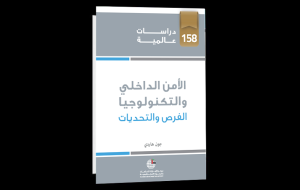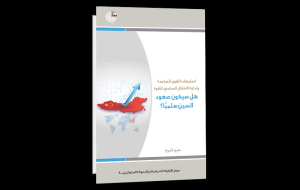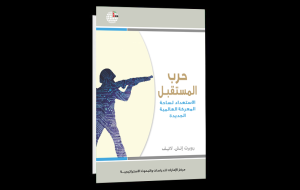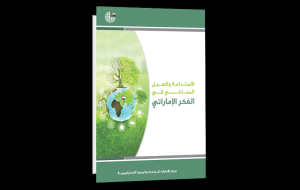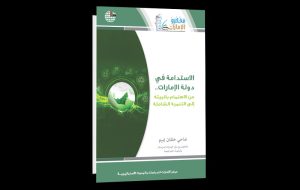This book focuses on an issue that has long dominated the international community’s security agenda. Since their first use against Japan in WWII, the greatest threat to humanity has been nuclear weapons, because of the total devastation they cause with effects extending beyond loss of lives to impact state structures and the Earth’s climate. As a result of the destructive power of nuclear weapons, strategic thinking deems them unusable in conflict, whether in offensive or defensive operations, with their main purpose being deterrence.
Over time, various threats to nuclear security have emerged, including the growth in the illicit trade of nuclear materials and equipment, as well as their development in the nuclear black market. Terrorist organizations have also attempted to acquire nuclear capabilities or attack nuclear facilities, in what has become known as nuclear terrorism. In recent years, we have also seen concerning developments related to the use of nuclear weapons. It seems the idea of their use is no longer dismissed as it once was, amid the emergence of new types of nuclear weapons that can be used in limited areas, where their impact can be controlled.
In light of these issues, the book reviews the main threats to nuclear security within the context of the Middle East, based on an analytical approach that addresses the most important issues in nuclear security.
The idea of nuclear security is often confused with other concepts, especially nuclear safety, as many consider the concepts interchangeable. In this respect, the first chapter of the book defines nuclear security, its determinants, and the dividing lines and commonalities between concepts of nuclear security and nuclear safety.
The book also considers the debate surrounding the main threats to nuclear security and examines the key issues. Some viewpoints limit these issues to the illicit trade of nuclear materials and nuclear terrorism, while others argue that the scope of nuclear security should be expanded to include direct threats, in a regional and global sense, associated with risks of nuclear proliferation.
This book adopts the broader view of nuclear security, considering threats that reflect various international agendas. In doing so, the scope of the study is expanded, offering more comprehensive and objective analysis.
The book identifies nuclear security threats in the Middle East and suggests potential response mechanisms. It focuses on the three main sources of nuclear threat in the region. The first relates to the perceived threats posed by Israel’s nuclear weapons.
The second comes from the Iranian nuclear program, regardless of whether the nuclear deal reached in July 2015 between Iran and the five permanent members of the UN Security Council—China, France, Russia, UK, US, plus Germany, ¬is maintained.
The third risk to regional nuclear security comes from nuclear terrorism, which has been identified as a threat. This study examines some of the forms the threat might take, particularly the likelihood of the manufacture of an atomic bomb, as well as various scenarios of attacks on the region’s nuclear facilities.
The book suggests three key mechanisms for dealing with threats to nuclear security in the Middle East:
1. The development of a regional nuclear weapons-free initiative. Obstacles to the implementation of this type of approach are also explored.
2. Strategies to ensure nuclear balance in the Middle East, which would also take into account the nuclear balance outside the region. This includes maintaining direct nuclear balance, whether at the bilateral level, such as between Israel and Iran (or the example of India and Pakistan), or multilateral nuclear balance, where several regional countries, other than Israel, would possess nuclear weapons. The book also considers indirect nuclear balance, which is known in some of the literature as “nuclear cover”.
3. Implementing procedures and policies to counter the threat of nuclear terrorism in the region. The book details some of these policy approaches, and applies them to specific cases, as models to potentially guide Arab countries.
In conclusion, the book makes several recommendations regarding the topics discussed over its four chapters.
Through its research, the book aims to highlight some of the most important features of nuclear security, and seeks to inform the public debate on the issue. It ultimately strives to deepen our understanding of this crucial topic and its dimensions, in order to address it from a sound perspective, and particularly from the Arab point of view, in a region subject to a considerable nuclear threat.
About the Author:
Ashraf Abdelaziz Abdelqader holds a master’s degree in political science from Cairo University and has been a political researcher in the Egyptian Senate since 2006. He worked as a political researcher with the Diplomatic Center for Strategic Studies in Kuwait from 2004 to 2009. In 2009, he became a fellow of the International Center for Future and Strategic Studies in Egypt.
Publisher: ECSSR [In Arabic]
Publication Year: 2019



